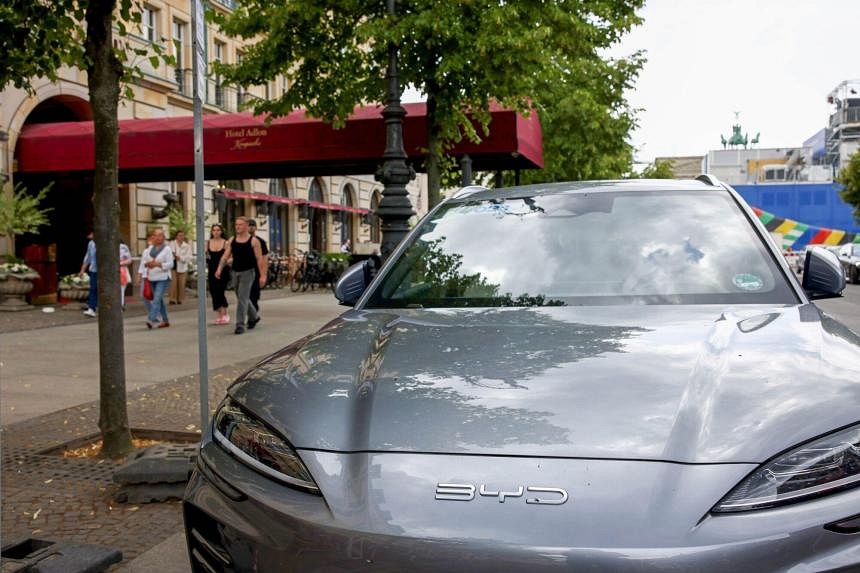SHANGHAI – With billions of dollars in trade at stake, China and the European Union have agreed to engage in talks to try to resolve an escalating dispute over tariffs.
China’s Commerce Minister Wang Wentao and EU trade commissioner Valdis Dombrovskis will hold discussions on the European Union’s plan for tariffs on electric cars from China, the Chinese Commerce Ministry said on June 22.
Hours earlier, Dr Robert Habeck, Germany’s Vice-Chancellor and Economic Minister, said the EU was willing to hold consultations and expressed hope that tariffs could be avoided.
In June, the European Commission, the executive body of the EU, proposed tariffs of up to 38 per cent on electric cars from China, on top of an existing 10 per cent tariff on imported cars.
The commission said it found that China’s electric car sector was heavily subsidised by the government and state-controlled banking system.
China’s exports of electric vehicles pose a growing challenge to Europe’s automakers.
Dr Habeck, speaking in Shanghai after meetings in Beijing, defended the tariffs.
“These tariffs are not punitive,” he said, adding that the tariffs are intended to offset subsidies that violate World Trade Organisation (WTO) rules.
It is unclear what a possible trade deal might look like.
Executives at Volkswagen and other European automakers have called for Chinese manufacturers to build cars in Europe with European workers earning European wages, instead of importing cars from China.
But Chinese automakers have already built dozens of electric car factories in China with what the EU describes as extensive subsidies, and are still building more factories.
Before agreeing on June 22 to talks, Mr Wang, who had met with Dr Habeck, accused the EU of violating WTO rules.
The National Development and Reform Commission, China’s top economic planning agency, said in a statement that “China will take all measures to safeguard the legitimate rights and interests of Chinese companies”.
It added that the tariffs were inconsistent with international efforts to address climate change.
The tariffs would put Germany in a tricky position. German automakers have extensive operations in China and worry that they will be hurt by retaliatory trade actions taken by Beijing. NYTIMES

